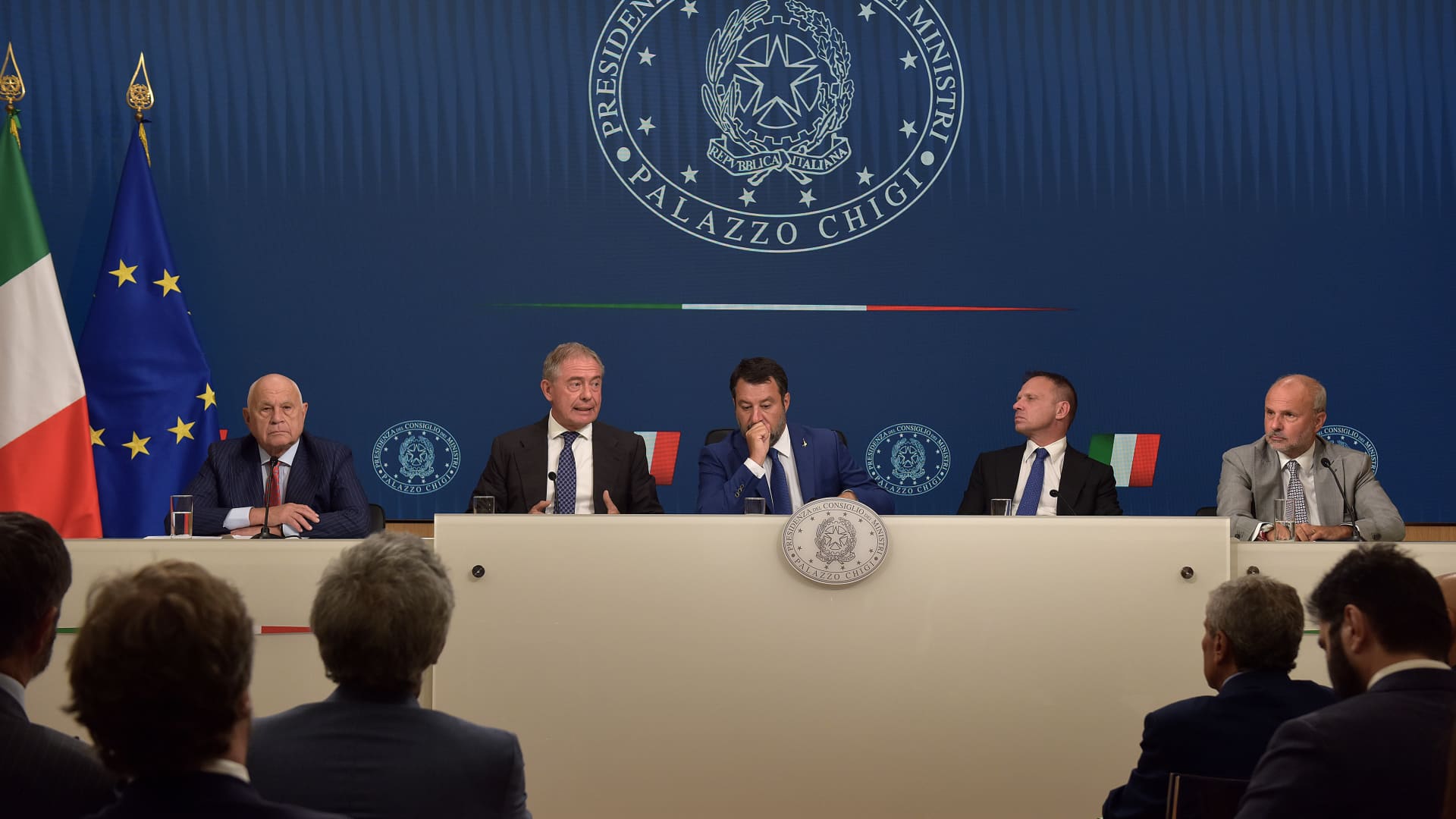Products You May Like
Italian banking shares took a beating on Tuesday morning after Italy’s cabinet approved a 40% windfall tax on lenders’ “excess” profits in 2023.
As of around 9:45 a.m. in Rome, BPER Banca shares had plunged 8% and Intesa Sanpaolo was down 7%, while Banco BPM, UniCredit and Finecobank all dropped more than 6%.
The effects were seen beyond Italy, with Germany’s Commerzbank down around 3% and Deutsche Bank trading 2% lower.
Italian Deputy Prime Matteo Salvini told a press conference on Monday that the 40% levy on banks’ extra profits derived from higher interest rates, amounting to several billion euros, will be used to cut taxes and offer financial support to mortgage holders.
“One only has to look at the banks’ first-half 2023 profits, also the result of the European Central Bank’s rate hikes, to realise that we are not talking about a few millions, but we are talking one can assume of billions,” Salvini said, according to a Reuters translation.
“If [it is true that] the cost of money burden for households and businesses has increased and doubled, it has not equally doubled what is given to current account holders.”
‘Substantially negative for banks’
The one-off tax will be equal to around 19% of banks’ net profits for the year, analysts at Citi estimated based on currently available data.
“We see this tax as substantially negative for banks given both the impact on capital and profit as well as for cost of equity of bank shares. The new simulated impact is also higher [than] the simulation we ran in April,” Citi Equity Research Analyst Azzurra Guelfi said in a note Tuesday.
The tax will apply to “excess” net interest income in both 2022 and 2023 resulting from higher interest rates, and will be applied on NII exceeding 3% year-on-year growth in 2022 from 2021 levels, and exceeding 6% year-on-year growth in 2023 versus 2022. Banks are required to pay the tax within six months after the end of the financial year.
“The introduction of this tax (which was discussed, then left pending) could lead to Italian banks increasing their cost of deposits in order to reduce the extra profit, and this comes after a round of results when every bank increases 2023 guidance for NII and assuming a slowdown of growth in 2H (due to raising deposit beta, even if expectation below previous guidance),” Citi said.
“It is not clear whether the tax will apply to domestic NII only (we base our simulation on this), and this could have larger impact for UCI vs. peers (given international franchise).”
